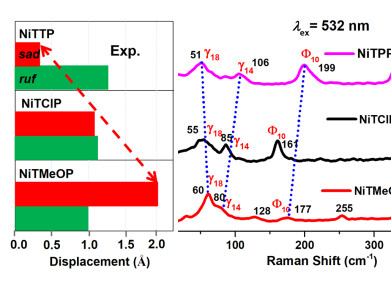Mass spectrometry & spectroscopy
What Are the Advantages of NMR Spectroscopy?
Oct 11 2021
From drug discovery and cancer research to food safety and environmental monitoring, Nuclear Magnetic Resonance (NMR) Spectroscopy is a valuable analytical tool used across a wide range of fields. Using a specialised spectrometer, scientists can profile the structures of samples on the molecular scale and unlock rich data.
How NMR Spectroscopy works
NMR Spectroscopy exposes molecules to an external magnetic field to excite the nuclei of atoms. In response, the nuclei generate magnetic energy and emit resonant frequencies, which are recorded, measured and converted into useable data. The technique offers a range of benefits, some of the most prominent listed below:
-
Highly detailed and accurate data
The ability to obtain highly detailed and accurate data on the molecular structure of a sample is one of the major benefits of NMR Spectroscopy. By triggering an energy transfer between an external magnetic field emitted by the spectrometer and electromagnetic signals generated by nuclei, scientists can access a treasure trove of data.
-
The ability to obtain rich data from intact molecules
Unlike many other techniques, NMR Spectroscopy doesn’t call for complex sample preparation. In many cases, it’s possible to place the sample directly into the spectrometer and obtain raw data almost instantaneously. This allows researchers to analyse molecules in their natural environment, without compromising the integrity or quality of the sample.
-
Fast and simplified data acquisition
Securing resources is a constant struggle for many laboratories. This makes technologies that speed up and simply the data acquisition process highly coveted. NMR Spectroscopy instruments do just this, allowing researchers to generate high-quality data with minimal effort.
-
Measuring self-diffusion coefficients
New breakthroughs in NMR instruments have allowed researchers to measure self-diffusion coefficients and extract valuable physical data from samples. This includes viscosity, molecular size and ionic conductivity and transference. The addition of Pulsed Field Gradient (PFG) to modern benchtop NMR spectrometers supports the use of new techniques such as Pulsed Field Gradient Spin Echo (PFGSE), which is used to record changes in NMR signals and measure the diffusion coefficients of sample components.
-
Affordable, easy to use instruments
Unlike some specialised laboratory instruments, NMR spectrometers are affordable and easy to use. Learning how to operate the equipment doesn’t involve weeks of training and there are many affordable options available to budget-conscious laboratories.
Over the past few years, X-Nuclei technology has reimagined the limits of NMR Spectroscopy. The introduction of the X-Pulse broadband instrument has allowed researchers to switch between a collection of X-nuclei on a broad frequency range. This has drastically increased the applications an instrument is capable of, as well as allowed for the comprehensive characterisation of samples containing multiple nuclei. Find out more about how the technology has revolutionised the field in ‘X-Nuclei NMR Spectroscopy’
Digital Edition
Lab Asia 32.2 April
April 2025
Chromatography Articles - Effects of small deviations in flow rate on GPC/SEC results Mass Spectrometry & Spectroscopy Articles - Waiting for the present to catch up to the future: A bette...
View all digital editions
Events
Apr 09 2025 Tokyo, Japan
Apr 22 2025 Hammamet, Tunisia
Apr 22 2025 Kintex, South Korea
Analytica Anacon India & IndiaLabExpo
Apr 23 2025 Mumbai, India
Apr 23 2025 Moscow, Russia



















